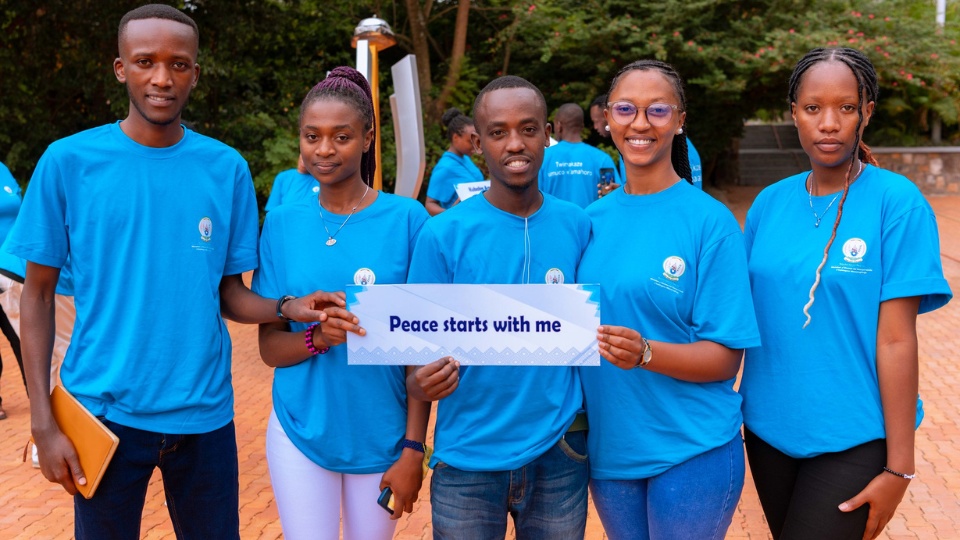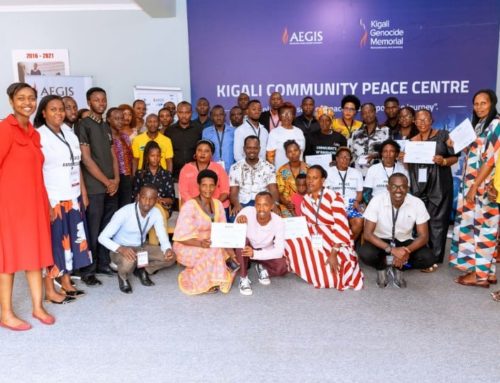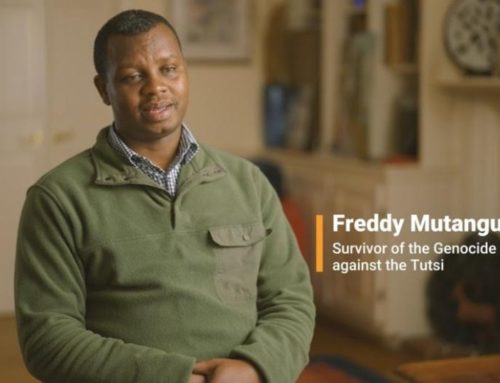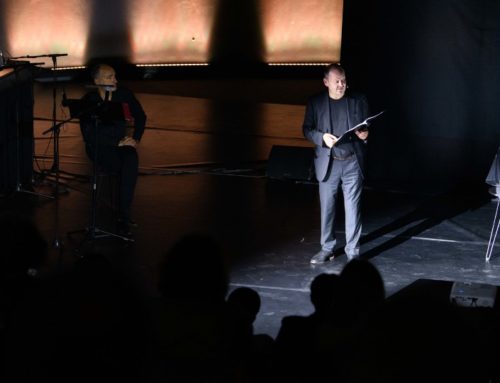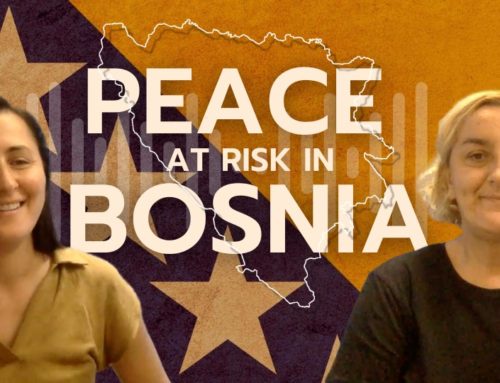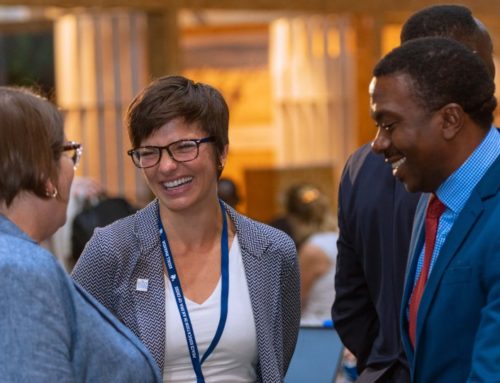On September 21st, the Kigali Community Peace Center located at Kigali Genocide Memorial hosted the national celebration of the International Day of Peace. Organized by the Ministry of National Unity and Civic Engagement in collaboration with International Alert, Never Again Rwanda, Interpeace, and Aegis Trust, the event was themed “Cultivating a Culture of Peace” and attracted around 400 attendees, primarily youth from various regions of Rwanda.
In her opening remarks, Ariane Inkesha, Country Director of International Alert, urged young people to embrace the noble values of their predecessors and work towards fostering and sustaining peace in Rwanda. She underscored the importance of critical thinking, stating, “We should learn to use our critical thinking to analyze and come up with our own paths, and not accept whatever anyone tells us without question. We must first ask ourselves if it is true, if it uplifts us, if it benefits our families and our country, and if it embodies integrity and loyalty.”
Following her address, a highly anticipated panel discussion took place, featuring Dr. Sylvestre Nzahabwanayo from IRDP, Nelly Rurangwa of Rwanda We Want, Jean de Dieu Uwizeye from the Association Modeste Innocent, and Dr Abdallah Utumatwishima, Minister of Youth and Arts. They delved into the relationship between culture and peace, highlighting its significance in Rwandan society and the vital role of young people in building and maintaining peace. “I believe we should start a trend of discussing peace, whether on social media or in safe spaces,” asserted Dr Utumatwishima.
Audience contributions enriched the discussion, addressing the complexities of transmitting Rwanda’s painful history within families. Jean de Dieu, who comes from a family of Genocide perpetrators, advocated for “intergenerational dialogues” to ensure that historical truths are accurately conveyed and to counter hateful ideologies that may linger. He believes these dialogues can foster collective understanding and unity, preventing future generations from being swayed by the toxic ideologies that led to genocide.
In his remarks, Frank Kayitare, Country Director of Interpeace Rwanda, reminded attendees that peace must start from within.“I would like everyone here to ask themselves this simple question: what do I think about when I am alone? The thoughts we have when no one is around reflect who we are. If we harbor negative thoughts that obstruct peace, we cannot act in favor of it.” He added, “Peace encompasses many aspects of life. It begins with our thoughts, extends to our interactions with others, and is reflected in our actions toward our peers. All these elements contribute to the overall peace of our society and country.”
In his concluding remarks, Dr Jean Damascene Bizimana, the Minister of National Unity and Civic Engagement, emphasized the crucial role of youth in securing a peaceful future for the nation. “You, the youth who were born after the genocide, have experienced 30 years of peace and prosperity, unlike our generation, which witnessed violence and hate. You are fortunate to live in a country that strives not only for our lives but also for the peace of future generations.”
This year’s celebration of the International Day of Peace served as a powerful reminder of Rwanda’s ongoing journey toward peace and unity. With leaders and youth engaging in critical discussions about peacebuilding, the event underscored the importance of intergenerational dialogue, critical thinking, and personal responsibility in preserving the hard-won peace of the country. As Rwanda progresses, the youth are called upon to take ownership of this peace, ensuring that the painful lessons of the past are not repeated and that future generations inherit a culture of dialogue, integrity and shared understanding.

